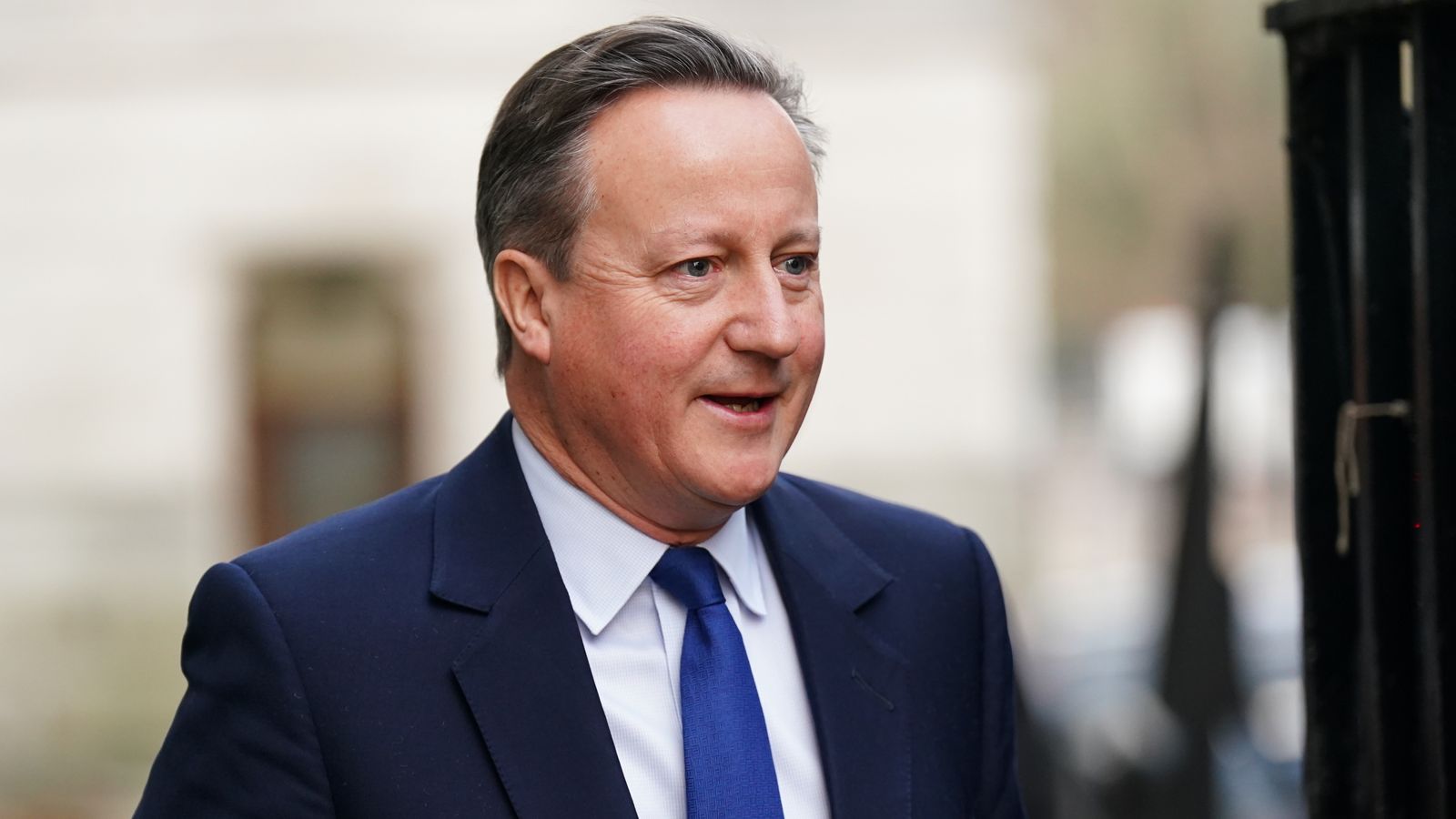MPs are considering using an arcane parliamentary mechanism to force Lord Cameron to take questions in the House of Commons.
There have been questions about how Lord Cameron – who was appointed a peer to allow him to be foreign secretary in Rishi Sunak’s reshuffle – would be held to account given he is no longer an MP.
MPs are considering calling the foreign secretary to the bar of the Commons, the white line on the chamber floor which marks the boundary beyond which guests or visitors may not pass when the House is sitting.
Calling Lord Cameron to the bar would allow him to be quizzed in the chamber even though he is not an elected MP.
Traditionally, only MPs are allowed to sit on the green Commons benches.
According to the New Statesman, MPs on the Procedure Select Committee favour the move – which has not been used for almost 70 years – and are set to recommend MPs adopt the measure to allow the foreign secretary to be scrutinised in person.
Politics latest: PM under fire after Sky News captures encounter with ex-NHS worker
At present Lord Cameron gives statements in the House of Lords, while a junior foreign office minister takes questions in the Commons. He has also appeared in front of select committees for questioning.
A committee spokesman said: “The Procedure Committee has undertaken an inquiry into how members of the House of Commons can scrutinise secretaries of states in the Lords.
“The committee will report back with its proposals shortly.”
Downing Street said it would consider any recommendations made and Penny Mordaunt, the Commons leader, recently told the committee Lord Cameron was “keen to accommodate what the Commons’ optimal solution is” for allowing MPs to hold him to account.
However, Cabinet Office minister Alex Burghart told the inquiry the committee should be aware that any recommendation for Lord Cameron to take questions in the Commons could have “unintended effects”.
“Starting to have secretaries of state in the Lords and them coming to the Commons to give evidence would probably lead over time to more secretaries of state being in the Lords,” he said.
“It might, over time, lead to prime ministers being in the Lords. That is not inevitable, but it is something that the committee might wish to bear in mind.”
He revealed that the Duke of Wellington was asked in 1814 to come to the bar of the House to thank the Commons for its support after the Peninsula War in Spain, and that the last time the procedure was used was in 1957 when journalist Sir John Junor was reprimanded for contempt of parliament.
Lucy Powell, Labour’s shadow Commons leader, told the panel’s inquiry on 18 December that forcing the foreign secretary to the bar was “not the optimal option”.
Instead she said a large committee room in parliament could be used to act as a Grand Committee during which Lord Cameron could face questions.
Read more:
Cameron dismisses claims of ‘plot’ for him to return as Tory leader
‘Nonsense’ for South Africa to accuse Israel of genocide, says foreign secretary
A Number 10 spokeswoman said: “The foreign secretary provides evidence to select committees and takes questions in the House of Lords.
“He is also represented by a minister of state in the Commons answering questions, so in that respect he is fully accountable to parliament.
“Any recommendations or reports coming through from various committees would be looked at in the usual way.
“We are confident we have the right arrangements in place to ensure that the government is held to account and scrutinised in both Houses.”
